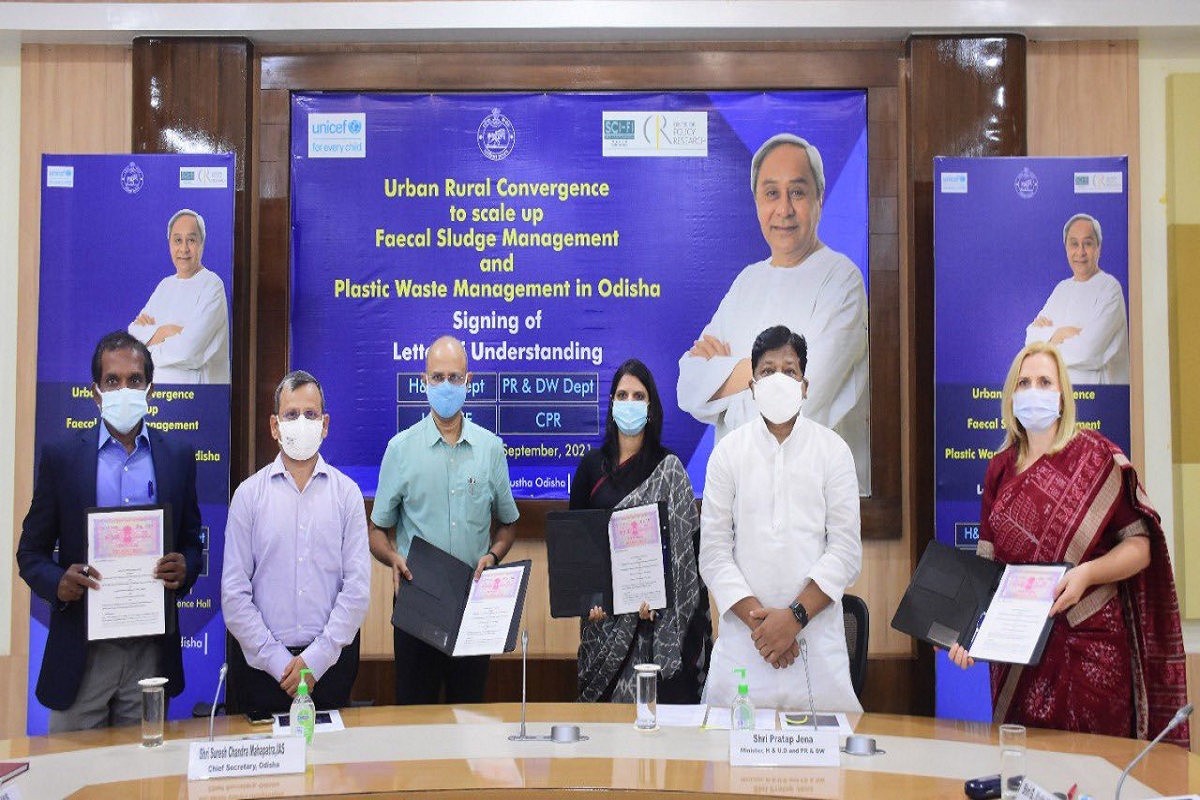A Letter of Understanding (LoU) was signed between the departments of Housing and Urban Development (H&UD) and the Panchayati Raj and Drinking Water (PR&DW), UNICEF and Centre for Policy Research (CPR) for urban-rural convergence on Faecal Sludge and Septage Management (FSM) and Plastic Waste Management (PWM).
The initiative is being launched in Angul, Balasore,Dhenkanal, Ganjam, Khurda, Mayurbhanj and Sambalpur in the first phase. Panchayati Raj Minister Pratap Jena said the intervention is a step towards fulfilling the vision of the CM to build “Swachh Odisha and Sustha Odisha.”
Further, the panchayats will now be tagged to urban facilities like Faecal Sludge Treatment Plant (FSTPs) and Material Recovery Facilities (MRFs) for effective faecal sludge and plastic waste management.
Chief Secretary S. C. Mahapatra, said the state has made substantial progress in both FSM and SWM in recent years.
The state government has already operationalised 58 FSTPs and by March 2022, all the 114 Urban Local Bodies will be covered with 118 functional plants, said Mahapatra.
Furthermore, Wealth Centres (WCs) have been established in each ULB comprising both Micro Compost Centres (MCCs) and Material Recovery Facilities (MRFs) for management of Solid waste including Plastic waste.
At present, 167 MRFs are functioning in the State through Mission Shakti Self Help Groups, he added. G. Mathi Vathanan, Principal Secretary, H&UD underlined the uniqueness of the urban-rural convergence model and said that it will further strengthen Odisha’s efforts in faecal sludge and plastic waste management.
He informed that the initiative being piloted in 7 districts now soon be extended to all the 30 districts within a year.
Principal secretary Panchayati Raj department, Ashok Kumar Meena, pointed out that the department has already notified Odisha Rural Sanitation Policy in 2020 which underscores adoption of safe and scientific management of solid waste with a special focus on plastic waste and liquid waste management.
We hope that the model will emerge as a best practice for the entire country to learn and emulated, observed Ms. Yamini Aiyer, President, CPR and Ms. Monika Nielsen, Chief Field Officer, UNICEF Odisha.











